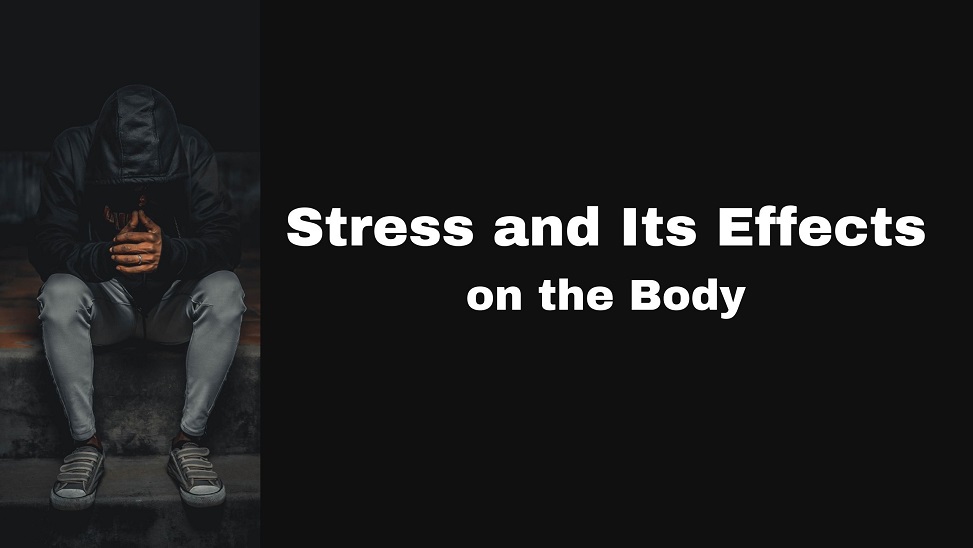Stress and Its Effects on the Body
In today’s fast-paced world, stress has become a common part of our daily lives. At the same time, stress is a natural response that helps us deal with challenging situations; prolonged or chronic stress can significantly impact our overall well-being.
This post delves into the intricate relationship between stress and the body, exploring how stress affects various physiological systems and offering insights into managing its adverse effects.
Understanding the Stress Response
When faced with a perceived threat or challenge, our body initiates the stress response.
This triggers the release of the stress hormones, including cortisol and adrenaline, preparing us for the “fight or flight” reaction.
While this response can be lifesaving in emergencies, persistent activation due to chronic stress can lead to various adverse effects on the body.
Effects on the Cardiovascular System
Chronic stress takes a toll on the cardiovascular system, contributing to various health issues:
High Blood Pressure: Stress hormones cause blood vessels to constrict, leading to increased blood pressure. Over time, this can strain the heart and increase the risk of hypertension.
Heart Disease: Prolonged stress can contribute to the development of atherosclerosis, a condition where arteries become narrowed due to plaque buildup. This increases the risk of the heart attacks and strokes.
Effects on the Immune System
Stress weakens the peoples immune system, making the body more susceptible to infections and illnesses:
Suppressed Immune Responses: Stress hormones, particularly cortisol, suppress the immune system’s ability to fight pathogens effectively. This can lead to frequent infections and delayed healing.
Autoimmune Disorders: Chronic stress may contribute to developing or exacerbating autoimmune disorders, where the immune system mistakenly attacks healthy cells.
Effects on the Digestive System
Stress has a profound impact on digestion and gastrointestinal health:
Gastrointestinal Disorders: Chronic stress can exacerbate irritable bowel syndrome (IBS), inflammatory bowel disease (IBD), and acid reflux.
Digestive Discomfort: Stress can lead to symptoms like stomachaches, bloating, and diarrhea due to changes in gut motility and increased sensitivity.
Effects on Mental Health
Stress takes a toll on mental well-being, leading to various psychological issues:
Anxiety and Depression: Chronic stress is a significant risk factor for anxiety and depression. The continuous release of stress hormones can disrupt neurotransmitter balance, contributing to mood disorders.
Cognitive Impairment: Prolonged stress can impair memory, concentration, and decision-making abilities due to the impact of stress hormones on brain structure and function.
Managing and Reducing Stress
While it’s impossible to eliminate all sources of stress, effective stress management techniques can mitigate its adverse effects:
Healthy Lifestyle: Regularly exercise, eat a balanced diet, and get sufficient sleep. These habits provide the body with the resources needed to handle stress.
Relaxation Techniques: Practice mindfulness, deep breathing, and progressive muscle relaxation to activate the body’s relaxation response and counteract stress.
Social Support: Maintain strong connections with friends, family, and support groups. Sharing feelings and seeking advice from loved ones can provide emotional relief.
Professional Help: If stress becomes overwhelming, seek help from mental health professionals. Therapy and counseling can provide strategies for managing stress and improving overall well-being.
Conclusion
Stress is an inherent part of life, but its effects on the body can be managed and mitigated through proactive measures.
Recognizing the impact of stress on the cardiovascular system, immune system, digestive system, and mental health underscores the importance of stress management.
By adopting healthy lifestyle habits, practicing relaxation techniques, nurturing a supportive social network, and seeking professional assistance, individuals can navigate life’s challenges while safeguarding their physical and mental well-being.
Thanks for visiting How To Cure Stress

